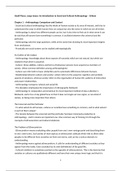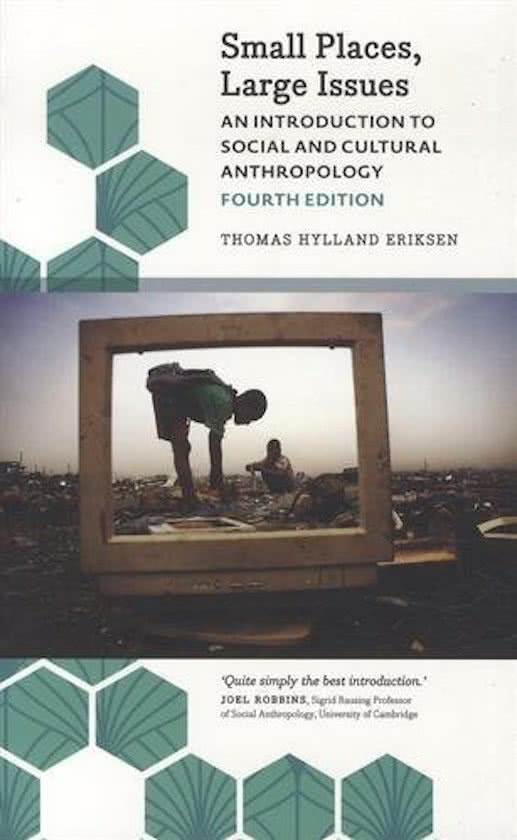Samenvatting
Summary Small Places Large Issues - Eriksen
- Instelling
- Vrije Universiteit Amsterdam (VU)
Summary of the chapters 1-20 of the book 'Small Places Large Issues' By T.H. Eriksen. Literature for the course 'Core Themes Anthropology'
[Meer zien]





